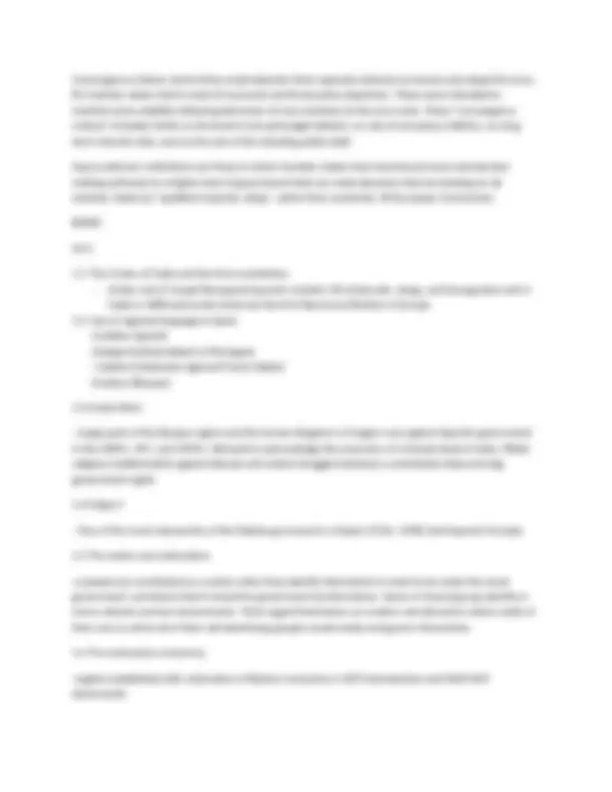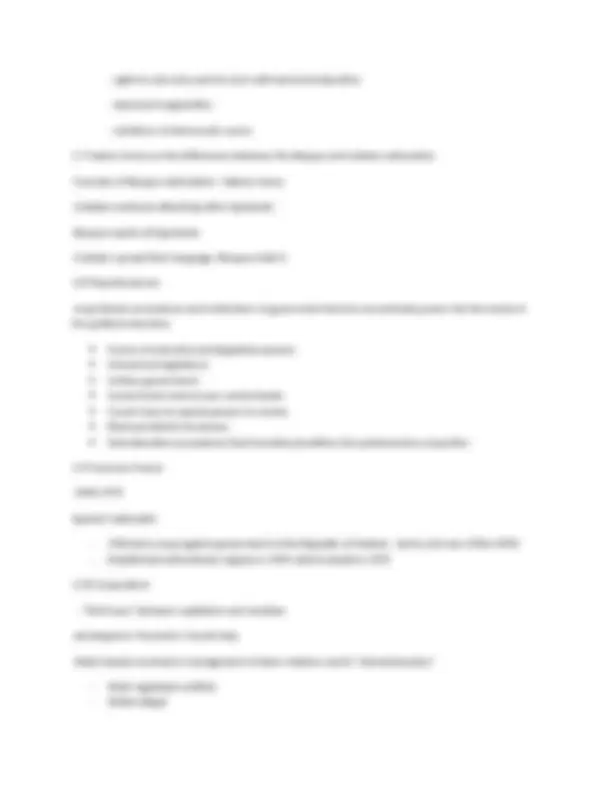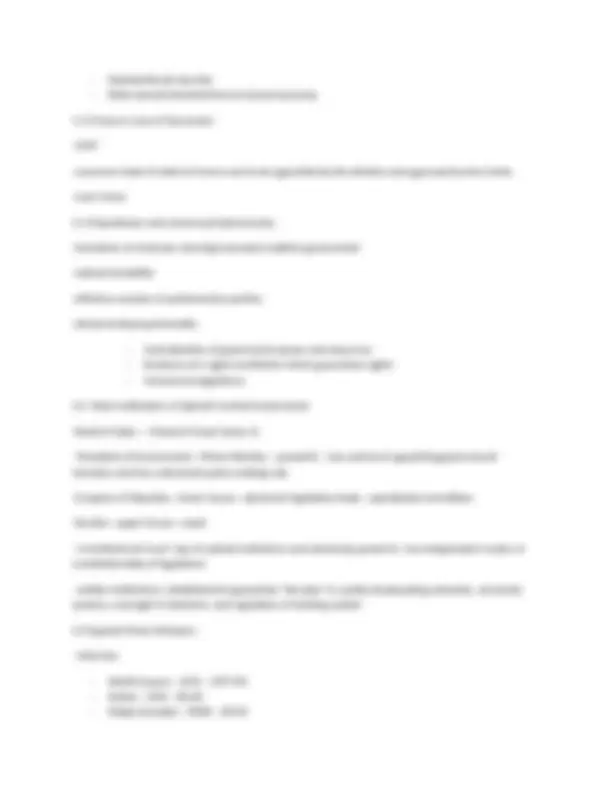





Study with the several resources on Docsity

Earn points by helping other students or get them with a premium plan


Prepare for your exams
Study with the several resources on Docsity

Earn points to download
Earn points by helping other students or get them with a premium plan
Community
Ask the community for help and clear up your study doubts
Discover the best universities in your country according to Docsity users
Free resources
Download our free guides on studying techniques, anxiety management strategies, and thesis advice from Docsity tutors
An overview of the political systems and institutions in spain, including the concepts of democracy, consolidated democracy, social cleavages, liberalism, state-building, and various historical and contemporary political movements. It covers topics such as the cortes, feudalism, anarchism, anarcho-syndicalism, and the role of the european union. This information is valuable for students of political science, history, and international relations.
Typology: Study notes
1 / 7

This page cannot be seen from the preview
Don't miss anything!




ID’S Ch 1. Democracy- political system whose leaders are elected in competitive multi-party and multi-candidate processes, and opposition parties have a fair chance of electing their representatives, elections are held at regular intervals, and all members of political community are able to express their preferences Consolidated democracy- political system which is fully democratic and regarded at legitimate Social cleavages- deep and persistent differences in society such as objective social differences (race, religion, region) are aligned with subjective awareness of these differences and are organized by political parties, groups or organizations State- set of sovereign government institutions which controls a well-defined contiguous territory which has a single legal code, and the right to use force to implement code Liberalism- stresses autonomy and dignity of individual, demands more civil liberties, religious freedom, and the free market (conflict within Church in Spain) State-building- acquisition of territory and establishing a common set of laws Iberia- mainland Spain and Portugal Feudalism- geographically decentralized sociopolitical order in which strongest political authority is possessed by aristocrats which land The Cortes- 2 houses of Spain’s present day parliament (congress of deputies and senate) are collectively referred to as the Cortes Generales -Cortes of Castile -Cortes of Aragon Fueros- charters of privileges and some self government rights that were granted to regions, towns, and the Church. Expansion of power weakened and abrogated this. Plurinational States- those who identify themselves as belonging to more than one national group (ex- Spanish and catalonian) Pronuncianientos- rebellions against the government by military officers. Do not attempt to set their own government in place. Just to change current government. The Generalitat- name of regional government of Catalonia Latifundia- “brood estates”- huge agricultural properties Anarchism- rejects all forms of authority: the state, religious leaders, and property owning elites
Anarcho-syndicalism- hostility towards the states, organized religion, and private ownership. Abolition could only happen through organized efforts of workers under Anarcho-syndical trade union leadership and through polarization of politics and labor relations which would cause a “general strike” and collapse economy CH 2 Estado de las autonomias- “state of the autonomies” Spain’s quasi-federal system
-successor head of state to Franco was to be appointed by the dictator and approved by the Cortes -Juan Carlos 2.1 Majoritarian and consensual democracies -formation of minimum winning/oversized coalition government -cabinet durability -effective number of parliamentary parties -electoral disproportionality